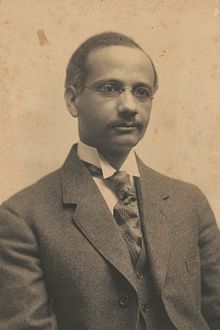February is Black History Month, a time to celebrate the rich tapestry of Black contributions to society, making this a good time to acknowledge achievements and progress in the behavioral healthcare field.
Often-overlooked pioneers paved the way for mental health awareness and treatment in the Black community. They also made important strides in our understanding of Alzheimer’s disease, childhood development, and the psychological impacts of racism. These pioneers faced immense challenges–fighting both systemic racism and cultural stigma surrounding mental health–but persevered to make groundbreaking advancements.
Their stories inspire us–and remind us that we still have a ways to go in addressing mental health disparities.
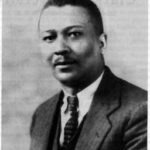 Francis Sumner (1895-1954) is often called the “Father of Black Psychology” for being the first African American to receive a Ph.D. in psychology from Clark University on June 14, 1920. He taught college for more than three decades and helped start the psychology department at Howard University. A prolific writer and researcher, Sumner had more than 45 publications and more than 2,000 abstracts, focusing on psychology and religion, justice administration, color and vision, and education. fa
Francis Sumner (1895-1954) is often called the “Father of Black Psychology” for being the first African American to receive a Ph.D. in psychology from Clark University on June 14, 1920. He taught college for more than three decades and helped start the psychology department at Howard University. A prolific writer and researcher, Sumner had more than 45 publications and more than 2,000 abstracts, focusing on psychology and religion, justice administration, color and vision, and education. fa
 Dr. Solomon Carter Fuller (1872-1953) was a neurologist, psychiatrist, pathologist, and professor whose research led to a greater understanding of Alzheimer’s disease. He received his MD from Boston University School of Medicine and later studied at the Royal Psychiatric Hospital at the University of Munich, where he worked with Alois Alzheimer. He discovered biomarkers for the study of Alzheimer’s disease and also studied the pathology of alcoholism. His discoveries continue to guide modern research.
Dr. Solomon Carter Fuller (1872-1953) was a neurologist, psychiatrist, pathologist, and professor whose research led to a greater understanding of Alzheimer’s disease. He received his MD from Boston University School of Medicine and later studied at the Royal Psychiatric Hospital at the University of Munich, where he worked with Alois Alzheimer. He discovered biomarkers for the study of Alzheimer’s disease and also studied the pathology of alcoholism. His discoveries continue to guide modern research.
 Inez Beverly Prosser (1895-1934) is celebrated as the first African American woman to earn a Ph.D. in psychology. Her dissertation focused one the effects of racism on the mental health and development of Black children. Her research challenged the contemporary notions that segregation benefited Black students emotionally and was used in the landmark Brown v. Board of Education U.S. Supreme Court case in 1954–a case which challenged the notions of “separate but equal” and led to the desegregation of American schools. Her views on segregated education were complex, and she thought that Black students could thrive in segregated schools if they were well-resourced.
Inez Beverly Prosser (1895-1934) is celebrated as the first African American woman to earn a Ph.D. in psychology. Her dissertation focused one the effects of racism on the mental health and development of Black children. Her research challenged the contemporary notions that segregation benefited Black students emotionally and was used in the landmark Brown v. Board of Education U.S. Supreme Court case in 1954–a case which challenged the notions of “separate but equal” and led to the desegregation of American schools. Her views on segregated education were complex, and she thought that Black students could thrive in segregated schools if they were well-resourced.
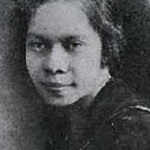 Ruth Winifred Howard (1900-1997) received her Ph.D. in psychology and child development from the University of Minnesota in 1934. She is known for being the first Black woman to receive a Ph.D. in psychology from a school of psychology. She worked with children with disabilities and co-directed the Center for Psychological Services with her husband, Albert Beckham.
Ruth Winifred Howard (1900-1997) received her Ph.D. in psychology and child development from the University of Minnesota in 1934. She is known for being the first Black woman to receive a Ph.D. in psychology from a school of psychology. She worked with children with disabilities and co-directed the Center for Psychological Services with her husband, Albert Beckham.
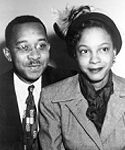 Mamie Phipps Clark (1917-1983) and Kenneth Clark (1914-2005): This dynamic husband-and-wife team of psychologists conducted groundbreaking research on the effects of segregation and discrimination on the self-esteem of Black children. Their famous “doll studies,” which demonstrated the damaging effects of racial bias on young children, were instrumental in the Supreme Court’s landmark decision in Brown v. Board of Education. Their work powerfully illustrated the psychological toll of racism and its impact on mental well-being and has been recreated in modern times. In 1946, they opened the Northside Center for Child Development in a one-room basement apartment in Harlem. Together, the Clarks devoted their entire lives to improving the mental health of Black people.
Mamie Phipps Clark (1917-1983) and Kenneth Clark (1914-2005): This dynamic husband-and-wife team of psychologists conducted groundbreaking research on the effects of segregation and discrimination on the self-esteem of Black children. Their famous “doll studies,” which demonstrated the damaging effects of racial bias on young children, were instrumental in the Supreme Court’s landmark decision in Brown v. Board of Education. Their work powerfully illustrated the psychological toll of racism and its impact on mental well-being and has been recreated in modern times. In 1946, they opened the Northside Center for Child Development in a one-room basement apartment in Harlem. Together, the Clarks devoted their entire lives to improving the mental health of Black people.
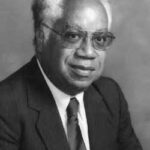 Dr. Joseph L. White (1922-2017): Often called the “godfather of Black psychology,” Dr. White was a tireless advocate for culturally relevant mental health care for Black individuals. He challenged the Eurocentric biases prevalent in psychology and emphasized the importance of understanding the unique experiences and cultural context of Black individuals when addressing their mental health needs. He played a crucial role in the founding of the Association of Black Psychologists, a vital organization that continues to champion culturally competent mental health care.
Dr. Joseph L. White (1922-2017): Often called the “godfather of Black psychology,” Dr. White was a tireless advocate for culturally relevant mental health care for Black individuals. He challenged the Eurocentric biases prevalent in psychology and emphasized the importance of understanding the unique experiences and cultural context of Black individuals when addressing their mental health needs. He played a crucial role in the founding of the Association of Black Psychologists, a vital organization that continues to champion culturally competent mental health care.
These pioneers, and many others, faced unimaginable hurdles, yet their dedication and resilience paved the way for progress in mental health within the Black community. Their work showcased the importance of culturally sensitive behavioral healthcare.
Their contributions made a difference and created progress in terms of mental health equity, but we know the fight is not finished. Disparities in access to care, cultural stigma, and the ongoing impact of systemic racism still pose significant challenges.
As we honor the legacy of these pioneers, we also commit to dismantling the barriers that prevent health equity access so that everyone can get the behavioral health care they need.
Learn more:
- What I learned when I recreated the famous ‘doll test’ that looked at how Black kids see race
- Black-white doll test still making an impact through children’s center in Harlem years later
- 8 Black Psychologists Who Made History
- Plessy v. Ferguson
- Brown v. Board of Education
Additional resources:
- Black Mental Health Alliance
- Uphold 31:8
- Caroline Therapist Focused on Mental Health of Black Men (Fredericksburg.com)
- 988 Lifeline: Black Mental Health
- Therapy for Black Girls
- Boris Lawrence Henson Foundation
- National Queer & Trans Therapists of Color Network
- Tips for Self-Care for Black Families
- Reimagining Resilience and Celebrating Black Joy
- We Need to Talk About Black Therapist Burnout (Forbes.com)
- The Loveland Foundation

